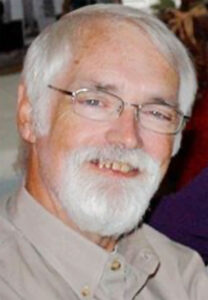Focal Passage: Acts 13:1-12
 I have served in several churches during my 40-plus years of ministry, range from three to eight years to my longest ministry at one church of 14 years. I once was asked, “If you love a church and its congregation, and they love you, why leave and go somewhere else and start all over?”
I have served in several churches during my 40-plus years of ministry, range from three to eight years to my longest ministry at one church of 14 years. I once was asked, “If you love a church and its congregation, and they love you, why leave and go somewhere else and start all over?”
There are many reasons pastors would give, some of which would have negative connotations in certain instances. But I have been blessed and personally never left any church under duress. The only difficulty I experienced with each change was the heartache of leaving those you have come to love. And, the only reason I left was because I felt the Holy Spirit calling me to another place of ministry. This week’s lesson talks about that very thing.
Beginning in Acts 13:1, Luke mentions several prophets and teachers, Barnabas and Saul being two among them. That is significant because these men were the pillars and posts of the church leadership in the church at Antioch. Losing any of these individuals would significantly impact the church. Later we will see that God’s desire for Barnabas and Saul would come to the attention of the congregation through probably the prophets among them. The congregation would need this leadership to determine God’s will for not only Barnabas and Saul, but for the church as well.
While they were worshiping, fasting and praying God made His desire known. We are not told how God did it, but I assume God made it known through the proclamation of one of the prophets among them. The congregation, then seeking God’s will, prayed and fasted for guidance. After agreeing that this was God’s will, they laid hands-on Barnabas and Saul and sent them off with their blessing and support.
The two missionaries then sailed to Cyprus. Why Cyprus? We are not told specifically, but if we look back at Acts 4:36, we will see that Barnabas was from Cyprus. What better place to start than in your own city and neighborhood. Along with that, Saul and Barnabas, being Jews, already had a preaching point there in the synagogues. So, that is where they started. Good lesson for us, start where you are with what you have and go from there.
God was blessing, and as the devil usually does, the devil tries to hinder and disrupt the work being accomplished by the Holy Spirit. When Barnabas and Paul, as Luke now refers to him by his Greek name, get to the city of Paphos, they encounter a sorcerer named Bar-Jesus. His name will later be referred to as Elymas. Luke indicates that he is not only a sorcerer, but a Jewish false prophet who used deceit and trickery to persuade people to his will and profit.
In this instance, it happened with the proconsul, Sergius Paulus, who had heard about what Paul and Barnabas had been teaching and preaching and was curious. He invited them to come so he could hear the Word of God himself, but Elymas opposed them strongly and attempted to persuade Sergius Paulus from believing. Paul, being filled with the Holy Spirit, pronounces judgment on Elymas and Elymas was made blind.
Ironically, Elymas attempted to blind the proconsul from the truth of God, but ended up blinding himself. Anyone who tries to blind others to the truth of God becomes blind to the truth and the saving knowledge of God. But, for the proconsul, because of what he saw and heard, his eyes were opened to that truth and he found salvation. B&R

